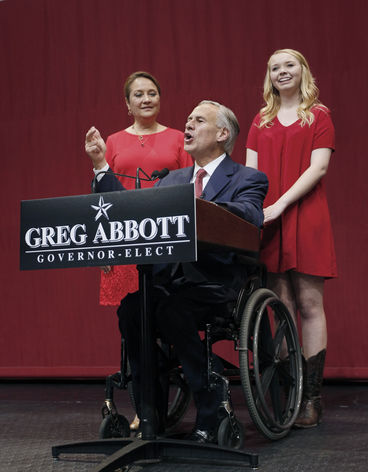The lifeline Barack Obama threw 5 million undocumented immigrants is seen as an exercise of discretion that historically only Congress can check, either through legislation or possibly impeachment.
Legal scholars say the president has strong arguments to deploy in defense of his executive order lifting the threat of deportation from millions of immigrants. And any lawsuits aimed at overturning it may not be resolved until after he leaves office.
Obama, a Democrat, said he will defer for three years the deportation of people who came to the U.S. as children, and of parents of children who are citizens or legal permanent residents.
The Swerving Path to Citizenship
The administration’s legal rationale relies in part on priorities dictated by funding limits. It also looks to a decades-long tradition in immigration statutes and enforcement policies of favoring individuals with family ties and strong connections to the community.
“The president always has discretion as to what laws to enforce, including who to deport,” said Erwin Chemerinsky, dean of the law school at the University of California at Irvine. “There is no question that this is within the president’s discretion to set priorities as to when to bring immigration deportation proceedings.”

Texas Attorney General and Governor-elect Greg Abbott said “President Obama has circumvented Congress and deliberately bypassed the will of the American people,” following Obama’s televised speech. Close
Texas Attorney General and Governor-elect Greg Abbott said “President Obama has… Read More
Texas Attorney General and Governor-elect Greg Abbott said “President Obama has circumvented Congress and deliberately bypassed the will of the American people,” following Obama’s televised speech.
Texas, Oklahoma
Still, Republican attorneys general in Texas and Oklahoma are considering lawsuits challenging Obama’s actions.
“President Obama has circumvented Congress and deliberately bypassed the will of the American people, eroding the very foundation of our nation’s Constitution and bestowing a legacy of lawlessness,” Texas Attorney General Greg Abbott said in a statement shortly after the president addressed the issue in a televised speech. Abbott this month was elected to succeed Rick Perry as governor of Texas.
Prosecutorial discretion “isn’t supposed to be something that you apply to groups,” said Stephen B. Presser, a law professor at Northwestern University in Chicago, who was skeptical of Obama’s action. “It’s something you apply to individuals.”
The initiative looks more like legislation, Presser said, and a federal judge could conclude it’s a fight for Congress to take up.
“It’s quite possible that a court could say: ‘Give me a break, this is a political issue! That’s what impeachment is for,’” he said.
Bush Program
The Justice Department memo backing deferred action compared the scale of Obama’s program to Republican George H.W. Bush’s 1990 Family Fairness Policy, which granted protection from deportation to spouses and children of aliens who received amnesty under a 1986 immigration law.
Like Obama’s order, Bush’s action affected about four of 10 estimated undocumented immigrants, according to the memo.
Police and prosecutors exercise discretion in everything from whether to write a traffic ticket to whether to enforce federal drug laws in states where marijuana is legal, said Sanford Levinson, a constitutional law professor at the University of Texas in Austin. U.S. presidents have been accused of abusing their discretion since George Washington’s day, he said.
“It is unimaginable that a court would say, ‘You can’t do this,’” Levinson said. “It would have to confront the entire issue of discretionary enforcement.”
Wide Net
Some argue that Obama is casting too wide a net by allowing almost half of the nation’s estimated 11.3 million undocumented immigrants to move out of the shadows.
“There are limits, and there are limits beyond which he will be in violation of the law if he deviates from the statutory authority that binds him,” said Peter Schuck, a professor at Yale Law School in New Haven, Connecticut, who teaches immigration law.
That law gives the president authority to engage in case-by-case suspension of enforcement, after considering the merits of a particular situation, according to Schuck.
In a New York Times op-ed, Schuck said there’s a “plausible” case for impeaching the president, though he warned it would be politically dangerous to do so.
According to the Justice Department, the executive actions require a case-by-case review of all applications for deferral and permit deportation of undocumented immigrants even in protected categories if it serves “an important federal interest.” Those conditions help keep the policy squarely within the tradition of prosecutorial discretion, according to the memo.
Money Matters
The memo stresses the financial constraints the government faces in enforcing immigration laws, with the Department of Homeland Security estimating its funding is sufficient only to remove a maximum 400,000 undocumented immigrants a year.
Immigration law also specifically delegates to the administration the power to set priorities in enforcement, and the steps Obama is taking are consistent with congressional actions, the memo said. The appropriations bill Congress enacted for 2014 funding places a priority on deporting criminals, for example.
The Justice Department argues the deferred-action categories — parents of U.S. citizens and legal permanent residents — are “consonant with congressional policies” because immigration law has long favored family unification. Parents of both U.S. citizens and permanent residents already have a path to lawful status, though one that may move slowly, according to the memo.
Driver’s License
Congress has recognized the concept of deferred action both by expanding eligibility for a battered-spouses program and by addressing immigrants in the U.S. under deferred-action programs in a 2005 law setting standards for state-issued driver’s licenses, the memo argues.
The Democratic-led Senate last year voted to boost border security and create a path to citizenship for undocumented immigrants. The plan stalled in the House of Representatives, where Republican leaders said they wanted to act on a piecemeal basis, though no bills were passed.
With little more than two years left in his term, any lawsuits may drag into the administration of Obama’s successor. The U.S. Supreme Court would need to act for a case to be resolved quickly, according to Glenn Reynolds, a law professor at the University of Tennessee in Knoxville.
‘Taken Down’
“If the court feels Obama needs to be taken down a peg,” it could move fast, said Reynolds, who argued that the president’s actions exceed the usual discretion claimed by law enforcement.
Michael Dorf, a constitutional law professor at Cornell University in Ithaca, New York, said those suing will have to show a recognizable legal injury the court can address.
“In general, the Supreme Court has said that no individual has standing to complain about the government’s failure to enforce the law against somebody else,” Dorf said.
Judges may have difficulty weighing the president’s motives.
“It would be hard to create a ‘What did you really mean?’ test,” Dorf said. “The fact that it only applies by its terms for a couple of years strengthens the Obama argument that this really is about setting enforcement priorities.”
Richard Epstein, a law professor at New York University, said the president may not be able to run out the clock. States could, for instance, refuse to issue drivers’ licenses or working papers to immigrants covered by the initiative, forcing the White House to file a suit of its own, he said.
“This issue is big enough, and the lawyers are smart enough, that you should not think of this in terms of one lawsuit played out in linear fashion,” Epstein said. “A multiple-front war is more like it.”
To contact the reporters on this story: Steven Church in Wilmington, Delaware at schurch3@bloomberg.net; Andrew Harris in federal court in Chicago at aharris16@bloomberg.net; Mike Dorning in Washington at mdorning@bloomberg.net
To contact the editors responsible for this story: Andrew Dunn at adunn8@bloomberg.net; Steven Komarow at skomarow1@bloomberg.net Peter Blumberg
Source Article from http://www.bloomberg.com/news/2014-11-24/obama-foes-seen-getting-no-court-help-on-immigration.html
Obama Foes Seen Getting No Court Help on Immigration
http://www.bloomberg.com/news/2014-11-24/obama-foes-seen-getting-no-court-help-on-immigration.html
http://news.search.yahoo.com/news/rss?p=immigration
immigration – Yahoo News Search Results
immigration – Yahoo News Search Results

